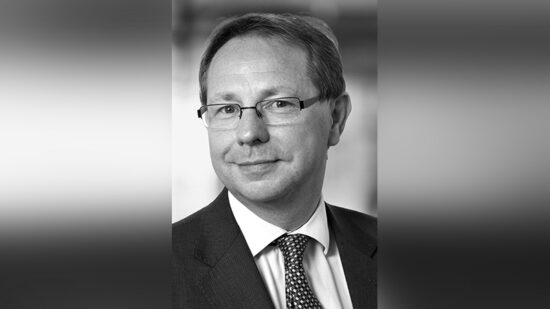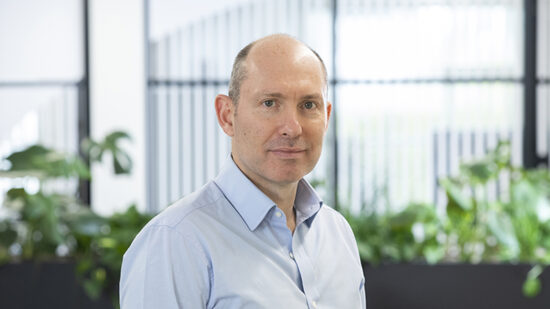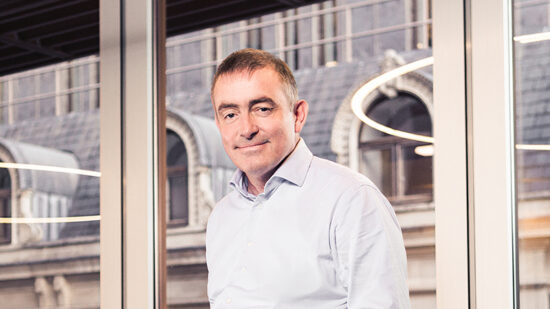When it comes to wealth management, Rathbones Unit Trust Management takes an individualistic approach. Despite being listed as a quoted company,the firm’s management preserves a culture of partnership.
This has attracted numerous fund managers to join from rivals Barings, HSBC and Jupiter. The philosophy of individualism is also reflected in the investment strategy and choices of the firm’s wealth managers.
“We don’t have any relationship managers,” says David Coombs, head of multi-asset investments at Rathbones,who joined the firm in 2007.“We don’t run on a prescriptive approach and we can’t hide behind a prescriptive model.”
What attracts fund managers to the firm is the focus on the client, rather than on business targets. “We don’t run model portfolios. We sit down and ask what fits. It’s about understanding the investment and matching the product with the service.” The first thing to know is what bespoke means, says Coombs. It is about understanding clients’ investment proposition and mapping the investment to what the client can
afford.
Three key messages come across. First is that fund managers should never overwhelm the client;second, do not let emotion dictate strategy; and third, where the market is today should not be part of the investment decision. The most popular demand at the moment is for risk-targeted portfolios.
Says Coombs: “Clients need to understand that loss of capital equals risk. In 75% of the conversations with clients we don’t even talk about returns. Targeted risk is about protecting and growing capital by looking at the entire wealth management spectrum.”
A top-down approach is vital, and to understand that risk is not relative and the same. This means setting strategies to meet those individual risks when putting the asset allocation together, according to Coombs.
Weighting game
When it comes to investment decisions in the asset allocation space, Coombs is cautious on nearly all assets, even those he is overweight in.“We are underweight the fixed income market. There is nothing we particularly like and we have a low exposure to duration.”
Property looks expensive and Coombs is wary of those predicting growth, meaning he has a low
weighting in the sector. Infrastructure trusts are currently demanding a huge premium and commodities continue to be in a bear market. Coombs also does not like gold and, overall, he is underweight alternatives.
“I don’t think equities are cheap but we are overweight US equity. We are underweight European equity as we can’t see any growth. We are not convinced of change in Europe as it is a risk. Given the political situation in Russia, Europe is much more exposed to these risks than the US.”
However, he is overweight Japan, remaining cautious. “Convictions in Japan are rising but there is a sense of realism since last year.”
Coombs is broadly neutral on the UK, pointing out a number of issues.“There’s the general election next May, and we believe growth will slow down. Sterling is vulnerable.”
Looking ahead, the emerging market indices do not look attractive, and Coombs is not considering investing in these markets soon. He is largely neutral on Asia, and here there could be potential to expand exposure.
Game changer
RDR means firms have had to work harder to justify their service, says Coombs. This flows through the client relationship down to the distribution side of wealth managers.
“There’s been a delayed reaction and we have really started to see big changes in the past 12 months.” These changes include a new attitude to risk, which has shifted focus.
“The FCA has stated it does not want formulaic risk-profiling systems. It is a common misunderstanding that the FCA is pro-model portfolio. “There has been a rise in the level of sophistication and quality of conversations. It’s all about the risk level now,” says Coombs.
The biggest issue resulting from regulatory changes is costs. “Ultimately, regulation raises everyone’s costs, but we view the changes as an opportunity. The IFA business has become much more transient than 10 years ago.
“It is moving towards a good quality business. We have had to hire more analysts in order to demonstrate our service but also the intellectual property of our investments.”
Pre-empting the RDR, Rathbones first started running risk-targeted profiles a few years before the implementation of the rules.
“Five years ago, the targets risk area was a lonely space, and the RDR definitely brought the market to us,” Coombs says.
The firm started developing a software system in-house, the Asset Allocation Modelling System, in a bid to scale IFA portfolios by comparing the individual investment preferences across common investment strategies.
The system enables wealth managers to find the commonality of asset allocation across multiple clients, right down to the specific stock choices, ranging from 0-100%, depending
on preference of the client.
“The IT system was not necessarily developed specifically for IFAs; it was to make the business more scalable by narrowing the buy lists.”
The system comes with a price tag– it took £3m to develop – but, ultimately, it has given Rathbones an
edge in the wake of the RDR. “The system enables our 230 managers to run all their own models
independently. It is a powerful electronic trading system and it allows clients to see every single trade.”
Frogs and princes
The UK wealth management industry has become a lot more complicated. “It used to be too UK-centric, explains Coombs, with too manywealth managers focusing on only the UK. Now people are paying us fees to do a bit more work and look beyond the UK.”
When it comes to selecting funds for clients, Coombs says he is willing to look at every fund. “Why would I not look at a fund? The industry is getting narrower,” he says. “Clients are paying us to go out and get ideas.
This means we need to kiss some frogs in order to see all the funds.”Looking for funds outside the normal universe takes a hands-on approach.
“We travel, and when we are in a city sometimes we will look in the phone book for fund groups we
have not heard of, and then go pay them a visit.”
Coombs adds: “Fund groups know we are willing to seed new funds and word gets around. We talk to competitors as well. One example of a newly invested fund is Michinori Japan, an offshore product run by London-based boutique Goodhart Partners, which launched earlier this year.
“We do not think it is risky to seed a new fund. The manager knows the stocks and he is embedded in the culture of the country. Also, he knows that he will not be able to grow his fund if he underperforms.”
For Coombs, it is inherently more risky to invest in a massive fund run by a manager who has never managed that amount of money before. For this reason, he has taken the M&G Global funds off his list.
“A fund manager may have an excellent three-year track record but that does not tell me anything about the future,” he explains.“From an investment perspective, seeding a new fund is not risky because these are experienced fund managers who know how to run money.“What does brand have to do with it?” he asks. “Nothing.”






